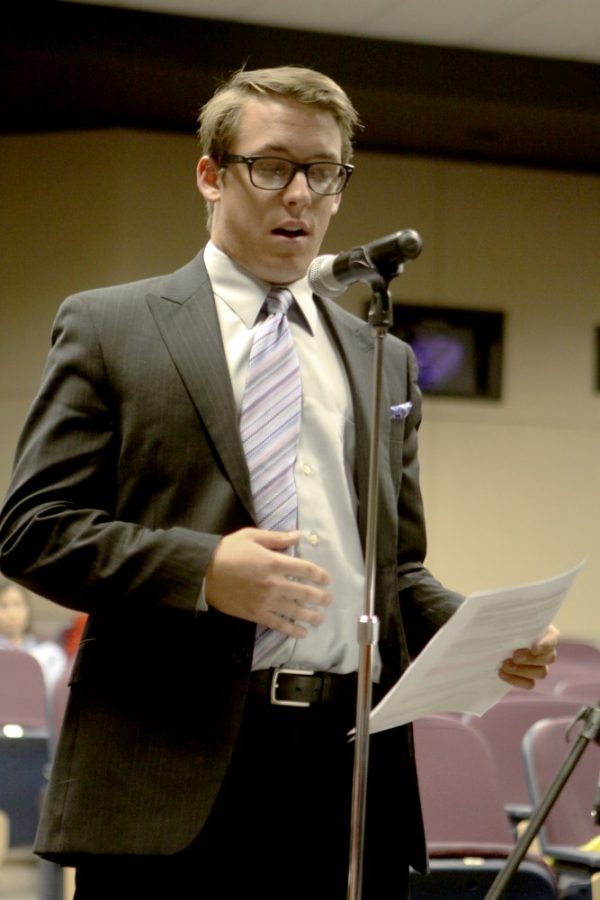At the tuition hearing on Wednesday, UA President Eugene Sander proposed a tuition increase for out-of-state and graduate students, which faced opposition from student leaders.
Sander proposed a 3 percent increase in tuition rates for out-of-state and graduate students. For students in the College of Medicine, he recommended a 4.4 percent increase in tuition fees for in-state students and a 4.3 increase for those out-of-state.
Sander mentioned proposed increases in differential tuition or program fees for a small group of professional graduate programs, as well as selected special class fees.
However, Sander said that new and continuing resident undergraduates should not face a higher tuition fee. The last time the UA presented a zero percent increase for resident undergraduate students was 20 years ago, he said.
Sander’s proposed increase is projected to generate $28.8 million per year, he said. Funds from the slated increase would support faculty recruitment, computational biosciences, environment and sustainability, energy, regional engagement and global studies.
Additionally, no increases to mandatory fees are proposed for fiscal year 2013, Sander said.
Although James Allen, president of the Associated Students of the University of Arizona, commended the university administration for attempting to minimize costs and for allowing open dialogue, he asked administration to maintain all current levels of tuition, non-discriminatory of resident or graduate status.
“Today, I advocate on behalf of our friends and family outside of the boundaries of the University of Arizona who can no longer afford their degrees,” Allen said. “We illustrate how the pain of college costs applies not only to undergraduates but also to graduates; not just to Arizonans, but also to those joining our state seeking a quality Arizona education.”
Allen asked that the Arizona Board of Regents take a national stance against tuition increases for all students to show a commitment to students attending the three in-state universities. He went on to mention the need for a “real zero,” which would prevent all students from paying increased tuition fees. Roeland Hancock, president of the Graduate and Professional Student Council, put his support behind Allen’s recommendation.
Following comments from their representatives, students were allowed to speak and provide their suggestions regarding the tuition proposal. Many of them commented on the need for state-based financial aid, and thanked Allen for his zero percent across the board recommendation.
“The lack of state-based financial aid affects our Arizona economy as a whole,” said Anthony Carli, a political science sophomore. “A state-based financial aid system in Arizona is a necessity to safeguard our state’s future. We need to relieve financial burdens on our students.”
Carli has currently taken out more than $25,000 in student loans. His parents are facing more than $70,000 worth of student loans for their children.
The Arizona Board of Regents will meet next week to set the tuition rates for the 2012-2013 academic year, but they will not accept public testimony due to the special hearing conducted Wednesday.









